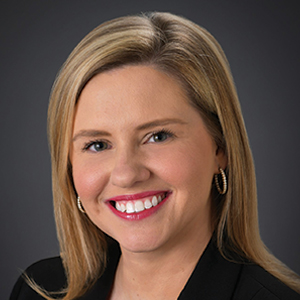If you are an employer in the banking industry, chances are you employ one or more employees in the role of mortgage loan officer (MLO). If so, read on to ensure that such employees are properly classified for purposes of wage and hour law.
Basics of the FLSA
Under the Fair Labor Standards Act (FLSA), which is the federal wage and hour law, employees must be paid at least the federal minimum wage for all hours worked and, with respect to hours worked in excess of 40 in a workweek, employees must be paid overtime pay at a rate of one-and-one-half times their regular rate of pay. However, Section 13(a)(1) of the FLSA provides exemptions from both minimum wage and overtime pay for workers employed in a bona fide executive, administrative or professional capacity.
To qualify for exemption, employees must generally be paid on a salary basis at a level of not less than $684/week ($35,568 annually). Further, the employee’s duties must satisfy certain requirements:
- For example, to qualify for the executive exemption, an employee’s primary duty must be managing the enterprise or managing a customarily recognized department or subdivision of the enterprise; the employee must customarily and regularly direct the work of at least two full-time employees or their equivalent; and the employee must have the authority to hire or fire employees, or the employee’s suggestions and recommendations as to the hiring, firing, advancement, promotion or any other change of status of employees must be given particular weight.
- To qualify for the administrative exemption, an employee’s primary duty must be the performance of office or non-manual work directly related to the management or general business operations of the employer or the employer’s customers, and the employee’s primary duty includes the exercise of discretion and independent judgment with respect to matters of significance.
- To qualify for the learned professional exemption, an employee’s primary duty must be the performance of work requiring advanced knowledge, defined as work which is predominantly intellectual in character and which includes work requiring the consistent exercise of discretion and judgment; the advanced knowledge must be in a field of science or learning (e.g., law, medicine, engineering); and the advanced knowledge must be customarily acquired by a prolonged course of specialized intellectual instruction.
Importantly, job titles do not determine exempt status. Instead, an analysis of one’s duties is essential. Employees who do not qualify for an exemption are known as “non-exempt,” and they are entitled to overtime pay. On the other hand, employees who do fall within an exemption are known as “exempt,” and they are not eligible for overtime pay. Misclassifying a non-exempt employee as exempt can lead to costly violations of the FLSA that can be difficult to defend in litigation.
Mortgage Loan Officers and the FLSA
The Section 13(a)(1) exemptions are known as the “white collar exemptions.” Because many MLOs perform non-manual work in an office setting, one might assume that they easily qualify for an exemption. However, the Department of Labor (DOL) has declared otherwise, although that hasn’t always been the Department’s position on this subject.
Initially, in 2001, the DOL issued an Opinion Letter, which concluded that a loan officer did not satisfy the administrative exemption under circumstances in which, although they performed the duties of:
- Acquiring a full understanding of the borrower’s credit history and financial goals in order to advise them regarding the selection of a loan package that will fit their needs and ability;
- Selecting from a wide range of loan packages in order to properly advise the client; and
- Supervising the processing of the transaction to closing, they failed to exercise the necessary “discretion and independent judgment” because their work ultimately involved choosing an already-established loan package that best meets the needs and financial abilities of the borrower and which comports with the specified requirements of the lender.
Then, in 2006, the DOL issued Opinion Letter FLSA-2006-31, which seemingly reached the opposite conclusion, advising that MLOs could qualify for the administrative exemption where they:
- Collect and analyze customers’ financial information;
- Advise customers about the risks and benefits of various mortgage loan alternatives in light of their individual financial circumstances; and
- Advise customers about avenues to obtain a more advantageous loan program.
Several years later, in 2010, the DOL abruptly reversed course, issuing an Administrator’s Interpretation, which concluded that the primary duty of the “typical” mortgage loan officer is to sell loan products to customers. Because their primary duty is making “sales,” mortgage loan officers are performing “production work” for their employer, not “servicing the business itself,” and, therefore, they are not within the administrative exemption. This Interpretation was challenged, and ultimately, the U.S. Supreme Court ruled that the DOL did not exceed its authority by issuing this rule; therefore, even though interpretive rules lack the force of law, courts should defer to the DOL’s interpretation of its regulations. Thus, as it stands today, the DOL’s position is that a “typical” MLO will not qualify for the administrative exemption.
On occasion, banking clients have inquired whether, notwithstanding the DOL’s position about the administrative exemption, an MLO could qualify for another exemption, such as the executive exemption, discussed in this article, the highly compensated employee exemption or even the outside sales exemption, which is another of the white-collar exemptions. To qualify for the outside sales exemption, an employee’s primary duty must be making sales, and the employee must be customarily and regularly engaged away from the employer’s place of business. The answer to such an inquiry is: “Perhaps. It depends.”
As previously set forth, an employee’s job title is not dispositive of their correct classification; rather, careful analysis of job duties is critical to determining exempt vs. nonexempt status. Financial institutions that employ loan officers are wise to audit their classification of such individuals and to consult with legal counsel to determine the correct status.
Julie A. Moore is a partner in the Morgantown office of regional law firm Bowles Rice. As co-leader of the firm’s Labor & Employment group, her practice spans the employment law spectrum and consists of advice and counseling, as well as defending litigation involving both single-plaintiff and class action employment disputes. Contact Julie at (304) 285-2524 or jamoore@bowlesrice.com.








